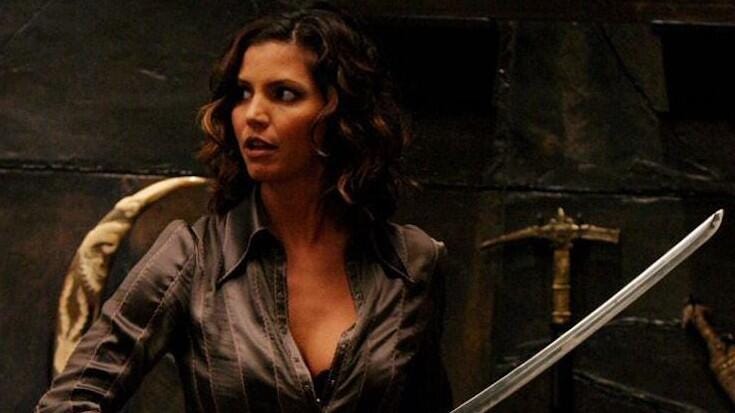
20 Years Later, and the Women of Angel Still Deserve More
The deaths of Darla, Fred, and Cordelia Chase were a waste
October 5, 2019 marks twenty years since the first episode of Joss Whedon's Angel, a spin-off from his acclaimed Buffy the Vampire Slayer in which David Boreanaz played the eponymous vampire cursed with a human soul. Buffy and Angel were both formative for millennials like me, who came of age on their quippy, ass-kicking version of girl power. For a long time, Whedon himself was lauded as a feminist ally and icon. But after two decades, Angel's feminist legacy doesn't hold up to a rewatch. Though the spin-off featured several nuanced, compelling female characters, too many of them met the same predictable end, sacrificed for male characters' emotional arcs.
Darla (Julie Benz) was Angel's partner in the century-long killing spree that came before his reformation; she was also his vampiric sire, the woman who literally turned him into a monster. Their relationship is the axis of the show's second season. Darla, brought back to life as human and then reborn as a vampire, attempts to pull Angel back into evil. He tries to save her, then to destroy her; somewhere in there they have sex. Darla becomes pregnant, which is supposed to be impossible for vampires. Just as improbably, she finds herself feeling love for her future child, which she credits to the influence of its human soul growing inside her. Finally, afraid she won't be able to love the baby once it's born, Darla stakes herself in labor, dissolving to ashes and leaving her infant son, Connor (played as an adult by Vincent Kartheiser), lying on the pavement.
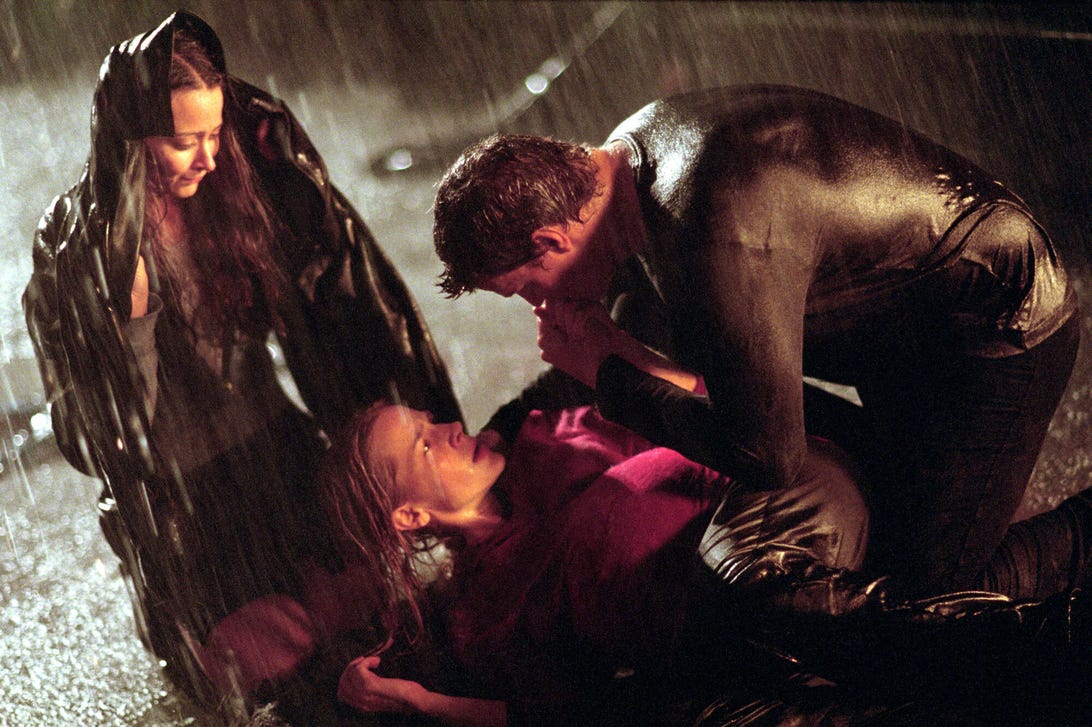
Julie Benz said in 2013 that she found the exit of her character profound, a final selfless deed by someone whose character had primarily been defined by self-preservation. Unfortunately, Darla was only the first of three Angel characters to die in childbirth. With each of the next two, her death looked less like a tragic sacrifice and more like the beginning of a disheartening pattern.
The last of the three was Fred Burkle (Amy Acker), whose body was hijacked and used as an incubator to bring the ancient god Illyria back to life. Fred doesn't literally give birth to Illyria, but the parallel is obvious. A foreign life form is placed inside her body by a man with whom she was briefly romantically involved. And when Illyria comes forth into the world, Fred is obliterated.
It's a crushing, painful, ugly death. It's not the resolution of a character arc or even particularly relevant to the season's main plotline. Mostly, it gives the primary male characters an extra helping of grief, rage, and guilt to carry into the season's final battle. And yet, as unjust and infuriating as Fred's death was, it wasn't as upsetting as the death I skipped over, the second and by far the most offensive of the show's three maternal mortalities. I'm still trying to find the words for what happened to Cordelia Chase.
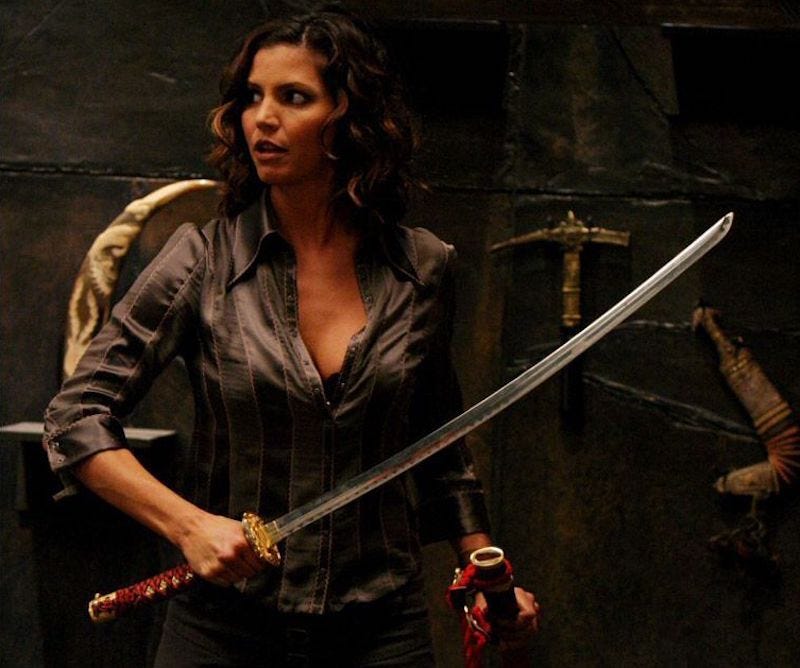
Cordy (Charisma Carpenter) was introduced in the first episode of Buffy the Vampire Slayer. She was a teen drama archetype: the hot, rich, mean girl with a slew of sycophantic followers. But instead of stagnating at 17 like so many pop culture high school queen bees before and after, Cordelia blossomed into someone dynamic and fascinating. She was self-centered, with a mean streak that never entirely went away, but she was also brave, generous, and surprisingly tender. She wasn't always likable, but she was wholly her own person.
Cordy's growth over three seasons of Buffy and three seasons of Angel is one of the most engaging character arcs on either show and in the whole of the Whedonverse. She begins as a reluctant ally against evil, bemoaning the stains left on her clothes when she's held hostage by vampires, and develops into a daring, capable fighter. What tethers Cordy to the fight on Angel are the visions of people in trouble. They plague her. They're overwhelming and physically painful, and at first she tries to get rid of them, to return to normal. But as she realizes how important helping the helpless is to her, she becomes willing to make sacrifices in order to keep her visions. By the end of Angel's third season, Cordelia proves herself worthy of ascending to a higher plane, becoming more than human.
And then Charisma Carpenter got pregnant.
Carpenter and writer/showrunner Joss Whedon have been vague about the details of their working relationship while making Season 4 of Angel, but fan speculation suggests that the plot had to be rewritten quickly to accommodate Carpenter's pregnancy. "Thrown together on the fly" is perhaps the nicest thing anyone could say about that season; it's a mess, culminating in the whole of the plot since the birth of Connor being wiped from most of the characters' memories.
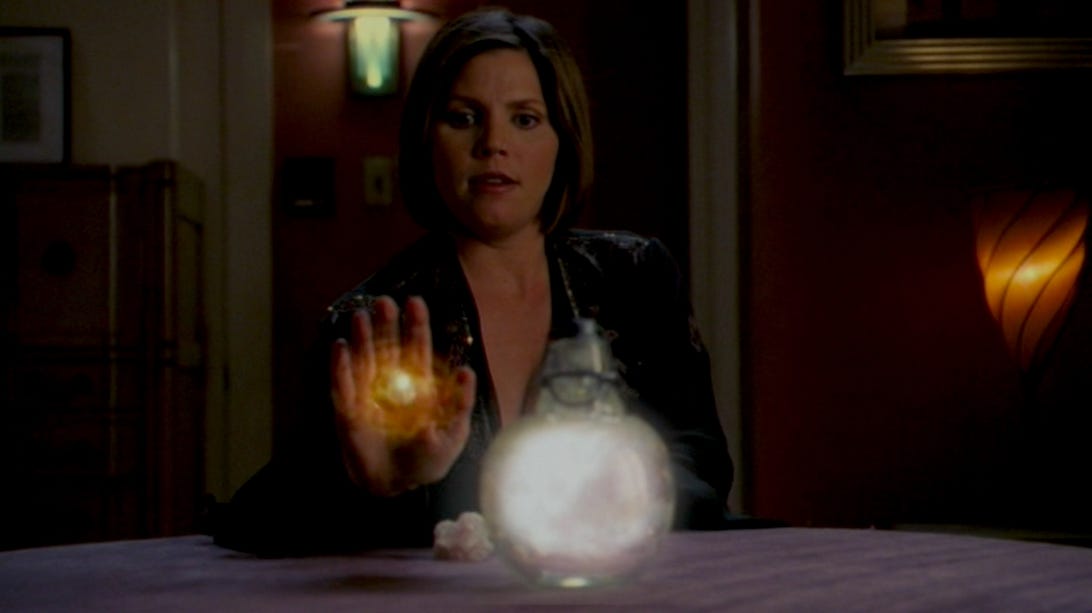
I'll never forget how Cordelia Chase, the beauty queen with the backbone, the most independent, ambitious woman in the entire run of Angel, was destroyed. Season 4 turned Cordelia into a villain, but not the way Willow (Alyson Hannigan) became a villain on Buffy, surrendering in a moment of anguish to all her long-established character flaws. I could have loved that version of evil Cordy: one whose frustrated ambitions and hard-won empathy exploded into violence. I would have followed that Cordy happily to the dark side.
Instead, we got the methodical dismantling of everything Cordelia was. Her sometimes painful honesty became deception and manipulation. Her love for Angel, which had grown slowly over the span of six years and two different shows, was abandoned in favor of seducing his son (let's not even touch the plot twists that took Connor from newborn to young adult in a single season). And instead of delving into the human reasons that would cause a once-righteous character to take a dark turn (as the show did with Wesley, played by Alexis Denisof, around the same time), the show explained Cordelia's villainy with a contrived demonic possession storyline. Cordelia had been taken over by the dark entity Jasmine (Gina Torres), which got pregnant so it could give birth to itself.
Season 4 rewrote much of Cordelia's previous character arc, reframing her growth and agency as deliberate maneuvering to bring her under Jasmine's influence. "Cordelia was chosen to become a higher being because she's such a pure, radiant saint? Puh-lease," said the demon who reveals the diabolical plan. It's a slap to the viewers who loved her, as well as to Cordelia herself. You were stupid, the show said, to think Cordy could be a champion.
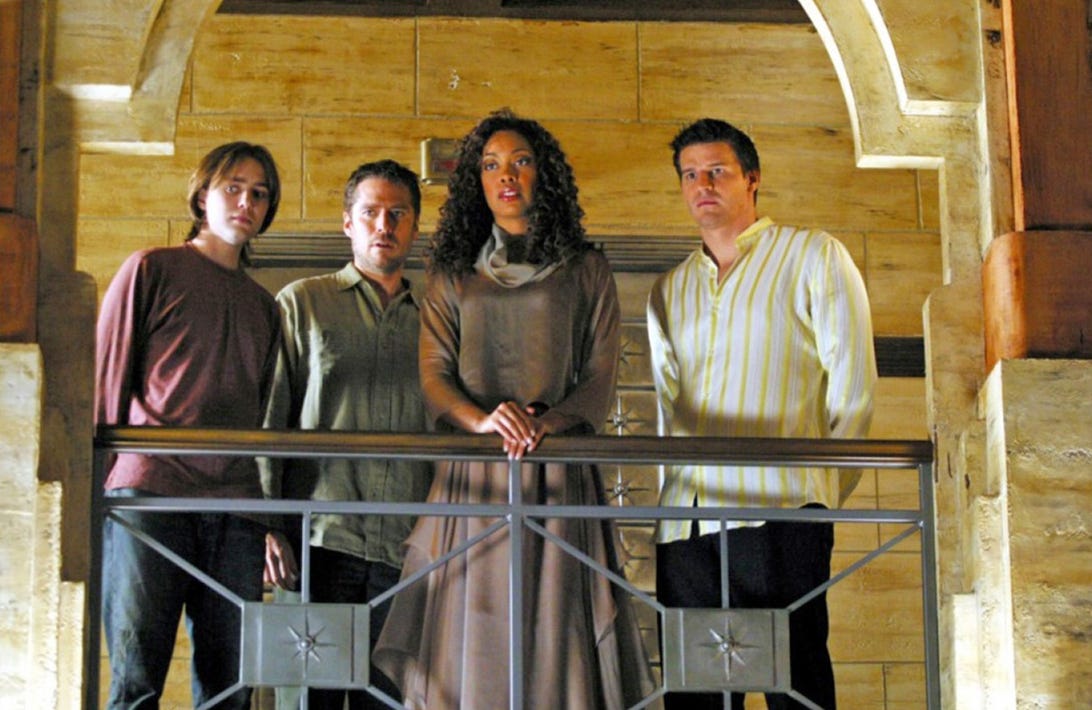
Cordelia fell into a coma giving birth to Jasmine, and a season later she died offscreen in a hospital bed, the events leading up to her death erased from history. Her last appearance on the show was when she used her dying wish to guide Angel back onto the path toward his destiny.
Charisma Carpenter allegedly being fired for getting pregnant would have been bad enough. But on top of that, audiences suffered through watching every piece of Cordy's indelible personality torn away before she left the show. Everything she had done since moving to L.A. was revealed to be someone else's plan; every choice she ever made was canceled. In the Buffyverse, where destinies are etched, curses hold for millennia, and prophecies are foretold, characters defined themselves by the decisions they made and the free will they exercised. If something else was always pulling Cordy's strings, then, in a very real sense, the Cordy fans loved -- the Cordy I grew up with -- never actually existed.
If Cordelia was sacrificed for the sake of the story, it didn't work. Nothing about her downfall made narrative or emotional sense; the whole season crumbled into nonsense for the sake of annihilating one character. Still, there's a kind of Puritan logic to it. It falls in line with the dire rhetoric of forced-birth advocates who insist that women must "face the consequences" of their sexual choices, whether that means trauma, unwanted parenthood, poverty, or death. Anything that happens to a woman during or as a result of pregnancy is her own fault.
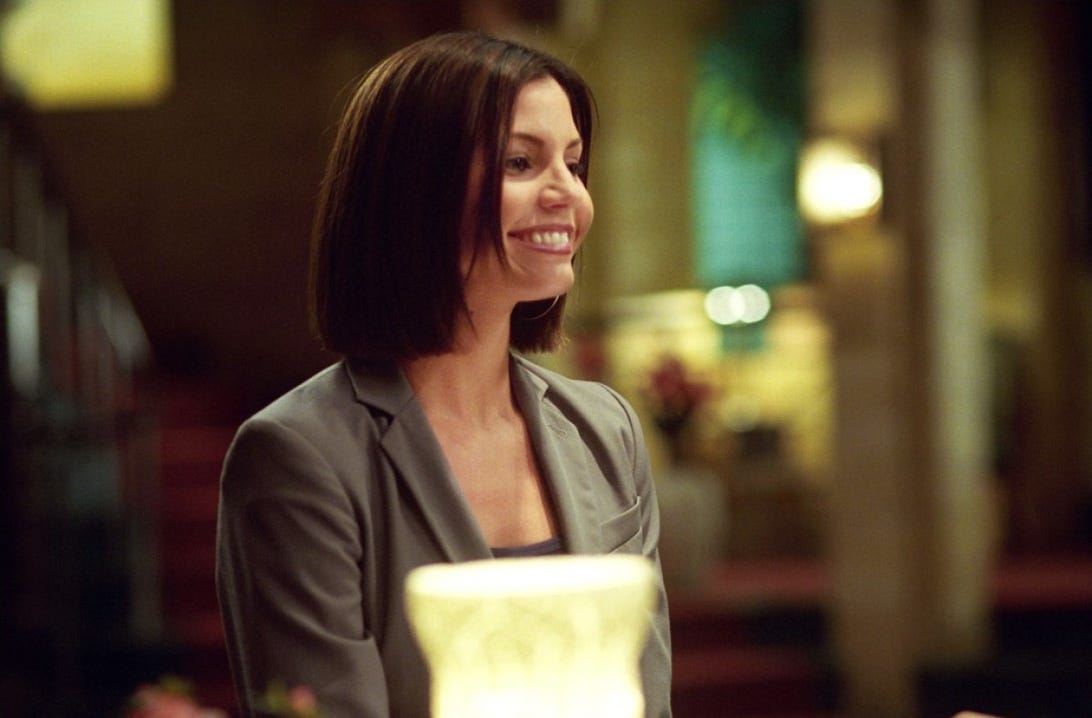
It could have gone a different way. Cordelia could have fought evil while pregnant, had visions while pregnant, worked through her feelings for Angel while pregnant. Motherhood could have furthered her story, challenged her, isolated her, or called her to be stronger. Cordelia Chase, the rich girl who lost everything, who rebuilt her life from the ground up -- if anyone's arc could accommodate an unplanned pregnancy, it was hers. It could have worked, if the Angel writers had been willing to imagine becoming a parent as part of her journey, instead of a replacement for it. The fact that they could and did imagine that kind of arc for Angel as he reconnected with his son points to the obvious.
While Angel's transformation into a parent challenged his own ideals and the way he saw the world, that was the kind of character growth the show reserved for fathers. When a woman got pregnant on Angel, her pregnancy overwrote everything previously established about her character. She was emptied out, replaced. Darla was subsumed with Connor's human soul. Fred became a shell through which Illyria could be reborn. And Cordelia's entire history was erased to make room for Jasmine. Taken together, the show's treatment of its female characters is painfully similar to the pressures women experience in real life to sideline their own health, careers, and autonomy for the sake of their children. As a mother myself, now, I see that for the erasure it is.
With the deaths of Darla, Cordelia, and Fred, Angel says that a woman is a person until she gets pregnant, and that's the end of her story. I wish that, at least once, they had turned the page and kept going.
Angel is available to stream on Hulu.
This story was originally published on Oct. 5, 2019